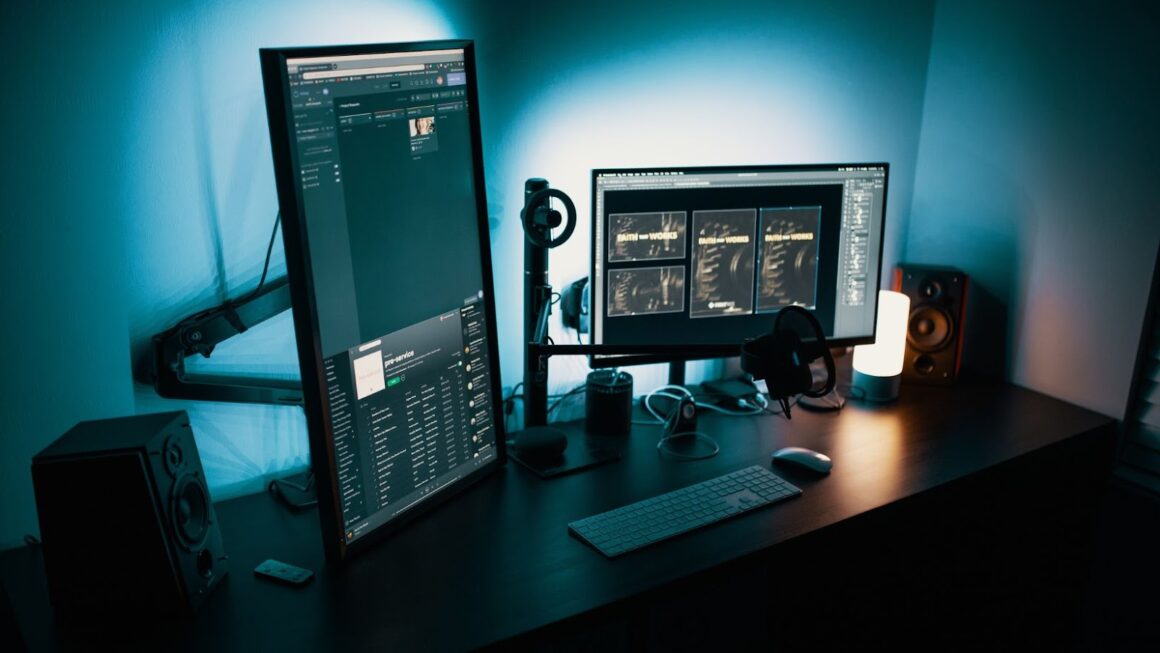Table of Contents
Benchmarking is one of the bread-and-butter tools of anybody who cares about PC performance. It’s how PC enthusiasts get all of the nerdy little details about how their PCs are running, allowing them to compare, tweak, and understand their systems better. Gamers, in particular, can get some extremely useful information from PC benchmarking.

You’ve probably seen YouTubers and component manufacturers posting and comparing benchmarks from their CPUs, GPUs, and other components. However, the average PC gamer can easily do their own benchmarking at home, too! Here, we’ll show you how to get started with benchmarking your PC.
What Is Benchmarking?
Benchmarks are standardized software tools designed for testing the performance of PC components like the CPU and GPU. They use consistent, repeatable, carefully designed processes to measure speed, efficiency, and other performance metrics in various tasks. The more similar the benchmark processes are to the actual tasks you use your PC for (and the actual conditions your PC operates in), the more accurate they’ll generally be. Component manufacturers benchmark their own products before release, and PC enthusiasts often conduct independent benchmarks once the products are on the market. These are the benchmarks that you’ll find in feedbacks, buying guides and other media aimed at PC gamers. However, gamers often benchmark their own systems, too, for all of the reasons we’re about to discuss.
Why Benchmark Your PC?
Why put in the effort of benchmarking a gaming PC in the first place?
● You want to check how your PC will handle certain demanding games
● You want to verify that your new custom or prebuilt gaming PC is working the way you want
● You want to test performance after changing settings or components
● You’re trying to identify the source of a performance bottleneck
● You’ve been tweaking performance specs (such as overclocking your CPU) and want to measure the difference
Ultimately, though, the only reason you need for benchmarking your PC is that you want to! With that in mind, let’s dive into the tools available for basic benchmarking.

Types of Benchmarking Tools
Two essential types of benchmarking tools exist: synthetic and real world. Here’s the difference:
● Synthetic: These applications test specific types of components using highly specialized processes and metrics, such as the number of floating point calculations that a CPU can perform. They’re good for creating consistent benchmarks, evaluating individual components, and looking at particular factors in isolation. By design, however, they ignore many other factors that can affect overall performance.
● Real World: A real world benchmark tests a system’s ability to perform a real task, such as rendering a graphical cutscene using specific settings. This includes popular GPU benchmarking software like Cinebench and Heaven, which are often inexpensive or free and provide endlessly tweakable settings for evaluating different performance scenarios. Many graphically intensive games also include built-in benchmark tests, which allow you to test the game’s performance on your system and find the settings where it runs best.
Tons of different benchmarking tools are available today, both in free and paid versions. Many now take a best-of-both-worlds approach that builds both synthetic and real-world benchmarks into the same software, so you can run a quick stress test on your CPU before putting it through its paces in a full 3D modeling scenario.
Which Components Should I Benchmark?
Depending on your goals, you might benchmark only one or two components individually, or you might go for a more comprehensive system benchmark. Either way, these are the components that people most often benchmark, along with common tools used for each one:
● CPU: A CPU benchmark can test important gaming factors like your CPU’s capacity for multi-threaded tasks, as well as general info like its speed and temperature. Of course, it’s also a must for testing the performance of an overclocked CPU.
○ Popular Benchmarks: Geekbench 5, Cinebench, AIDA64
● GPU: GPU benchmarks start with essentials like the card’s thermal performance and ability to keep a stable framerate at various resolutions. Most also offer all kinds of advanced graphics settings to test as well — plus overclocking, of course, if you’re into that.
○ Popular Benchmarks: Heaven, 3DMark, MSI Afterburner
● SSD: An SSD benchmarking tool will test your SSD’s read/write speed. Note that, since benchmarking an SSD creates a tiny amount of wear, you probably don’t want to do this over and over if you don’t need to.
○ Popular Benchmarks: CrystalDiskMark, ATTO Disk Benchmark
● Full System: Looking for a tool that does it all? Full system benchmarks allow you to test each component individually or run tests that combine various performance aspects, such as how the CPU and GPU work together when rendering graphics.
○ Popular Benchmarks: PCMark, PassMark, Novabench
Pretty much all of these utilities work in the same basic way: download it, run it, check the results. The process isn’t difficult at all, but if you’re new to benchmarking, it may take some trial and error to figure out how to get the most accurate benchmarks for your PC.
Tips and Tricks for Benchmarking
Here are a few tips that can help you get the most from your benchmarking tools:
● Make sure you’ve updated all of the drivers on your PC components. Running older drivers can give you sub-optimal performance that shows up in your benchmark data. While you’re at it, check to be sure your OS is running its latest version.
● Reboot your PC before you do any benchmarking to make sure you’ve got a fresh start. Close any applications running in the background that aren’t strictly necessary, unless you’re benchmarking against real world conditions in which these apps will be running simultaneously.
● Repeatability is a key part of getting accurate benchmarks, so expect to run your benchmark tests more than once in many cases. Pay attention to which settings you change and keep track of what gives you the best results if you’re looking to use benchmarking as a tool for tweaking in-game performance.

Experiment, poke around, and find the methods that work best for your gaming needs. Mastering the art of benchmarking will make you better at troubleshooting PC problems, optimizing your games’ performance, and generally getting the most out of your gaming PC!





